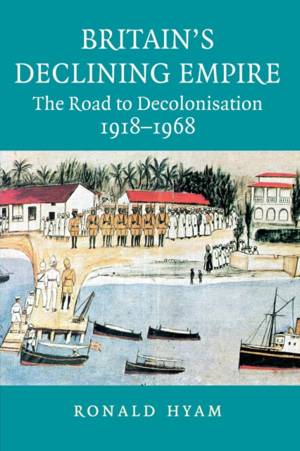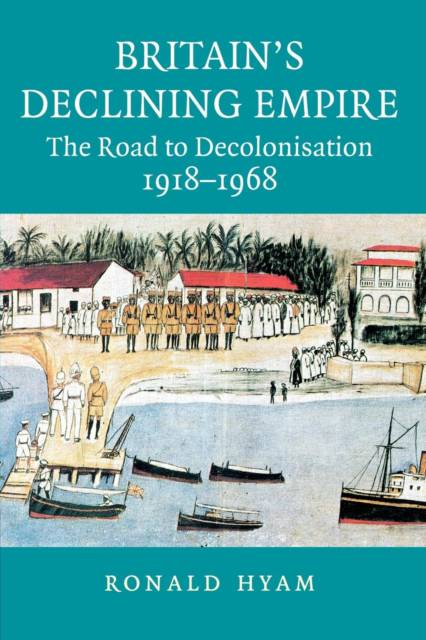
Door een staking bij bpost kan je online bestelling op dit moment iets langer onderweg zijn dan voorzien. Dringend iets nodig? Onze winkels ontvangen jou met open armen!
- Afhalen na 1 uur in een winkel met voorraad
- Gratis thuislevering in België vanaf € 30
- Ruim aanbod met 7 miljoen producten
Door een staking bij bpost kan je online bestelling op dit moment iets langer onderweg zijn dan voorzien. Dringend iets nodig? Onze winkels ontvangen jou met open armen!
- Afhalen na 1 uur in een winkel met voorraad
- Gratis thuislevering in België vanaf € 30
- Ruim aanbod met 7 miljoen producten
Zoeken
€ 41,95
+ 83 punten
Uitvoering
Omschrijving
An authoritative political history of one of the world's most important empires on the road to decolonisation. Ronald Hyam's 2007 book offers a major reassessment of the end of empire which combines a study of British policymaking with case studies on the experience of decolonization across Africa, Asia and the Caribbean. He describes the dysfunctional policies of an imperial system coping with postwar, interwar and wartime crises from 1918 to 1945 but the main emphasis is on the period after 1945 and the gradual unravelling of empire as a result of international criticism, and the growing imbalance between Britain's capabilities and its global commitments. He analyses the transfers of power from India in 1947 to Swaziland in 1968, the major crises such as Suez and assesses the role of leading figures from Churchill, Attlee and Eden to Macmillan and Wilson. This is essential reading for scholars and students of empire and decolonisation.
Specificaties
Betrokkenen
- Auteur(s):
- Uitgeverij:
Inhoud
- Aantal bladzijden:
- 484
- Taal:
- Engels
Eigenschappen
- Productcode (EAN):
- 9780521685559
- Verschijningsdatum:
- 5/02/2007
- Uitvoering:
- Paperback
- Formaat:
- Trade paperback (VS)
- Afmetingen:
- 152 mm x 216 mm
- Gewicht:
- 775 g

Alleen bij Standaard Boekhandel
+ 83 punten op je klantenkaart van Standaard Boekhandel
Beoordelingen
We publiceren alleen reviews die voldoen aan de voorwaarden voor reviews. Bekijk onze voorwaarden voor reviews.











